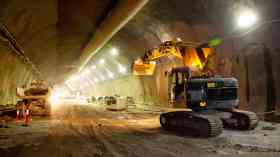Sue Robb of 4Children talks to Julie Laughton and Alison Britton from the Department for Education about the role of childminders in delivering the 30 hours free entitlement.
UK public sector risks locking-in outdated technology
The research shows that the most common areas where there has been smart technology adoption are building efficiency (77 per cent), LED lighting (57 per cent) and water and waste technologies (24 per cent). The smart technologies respondents have installed include sensors, which combined with internet connectivity and control systems, enhance performance and efficiency and reduce resource consumption, costs and carbon emissions.
Despite the public sector realisation concerning the potential of smart technologies in delivering cost effective services, executives face remaining challenges. This is seen both in budget costs and a lack of long term implementation strategies.
The research also showed how 64 per cent cited availability of funds as the biggest barrier to the implementation of smart technologies, while organisational strategy (34 per cent) and procurement know-how (30 per cent) were also seen as significant obstacles.
The survey also highlighted areas that were deemed to have the greatest potential to deliver positive social, economic and environmental benefits. Aside from building efficiency (77 per cent), smart technology implementation in transport and mobility (45 per cent), citizen engagement (36 per cent), LED lighting (31 per cent) and energy efficiency (27 per cent) were viewed as holding future potential.
Tim Pryce, Head of Public Sector at the Carbon Trust, said: “Public sector sustainability professionals need a mix of financial, procurement and project management skills to design and implement investable projects. This will help public bodies to build the business case for investing in technologies and equipment that can deliver real efficiency and carbon savings.”
Agostino Renna, president and CEO of GE Lighting Europe, Middle East & Africa, said: “Technology is no longer the key barrier for adoption of smart technologies, the barriers are now related to procurement and skills. The good news is that innovative business models exist, such as self-financing, allowing estates to de-risk procurement, prevent lock-in and benefit from major efficiencies, for example from intelligent lighting, which can cut energy bills by up to 80 per cent.”
Company Focus
Located in Bromley, Japanese Knotweed Eradication Ltd has been providing solutions in the treatment and removal of Japanese Knotweed (Fallopia Japonica) for over a decade. During this time we have mastered a repertoire of methods, from herbicidal treatments to landscaping solutions, tailored to address the unique challenges our clients face with this pervasive weed.
Event Diary
UKREiiF has quickly become a must-attend in the industry calendar for Government departments and local authorities.
The multi-award-winning UK Construction Week (UKCW), is the UK’s biggest trade event for the built environment that connects the whole supply chain to be the catalyst for growth and positive change in the industry.
Supplier Profiles
Geo Energy
At GeoEnergy Design, we're on a mission to disrupt the traditional way heating and cooling ha
Latest Features
Professor Harith Alani, director of the Knowledge Management Institute at the Open University explains how AI can be used for good and bad.
Alex Lawrence, head of health & social care, techUK sets out techUK’s Five Point Plan for CareTech.

















